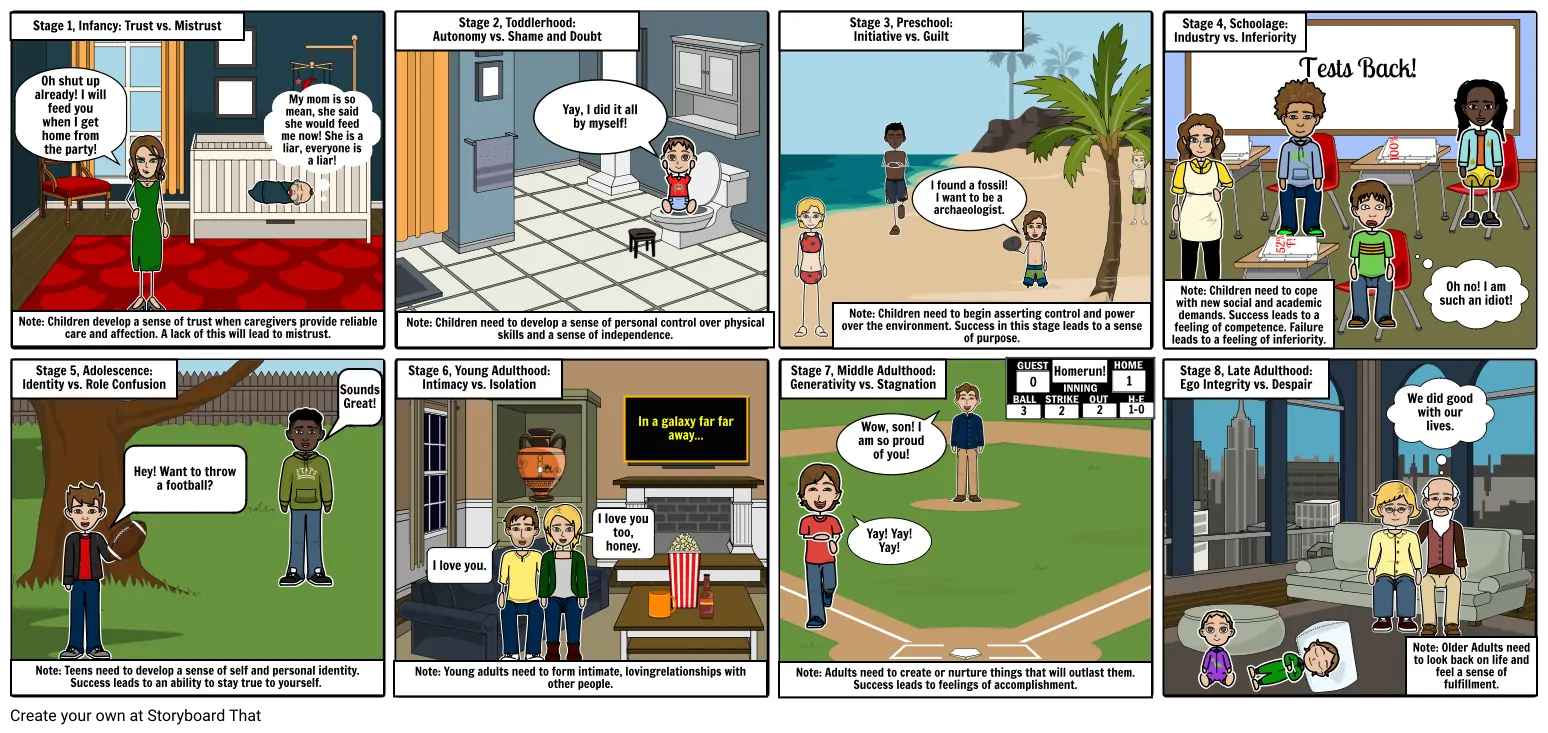AP Psych Erik Erikson

Siužetinės Linijos Tekstas
- Stage 1, Infancy: Trust vs. Mistrust
- Note: Children develop a sense of trust when caregivers provide reliable care and affection. A lack of this will lead to mistrust.
- Oh shut up already! I will feed you when I get home from the party!
- My mom is so mean, she said she would feed me now! She is a liar, everyone is a liar!
- Stage 2, Toddlerhood: Autonomy vs. Shame and Doubt
- Note: Children need to develop a sense of personal control over physical skills and a sense of independence.
- Yay, I did it all by myself!
- Stage 3, Preschool: Initiative vs. Guilt
- Note: Children need to begin asserting control and power over the environment. Success in this stage leads to a sense of purpose.
- I found a fossil! I want to be a archaeologist.
- Note: Children need to cope with new social and academic demands. Success leads to a feeling of competence. Failure leads to a feeling of inferiority.
- Stage 4, Schoolage: Industry vs. Inferiority
- Tests Back!
- 52% F!
- 100%
- Oh no! I am such an idiot!
- Note: Teens need to develop a sense of self and personal identity. Success leads to an ability to stay true to yourself.
- Stage 5, Adolescence: Identity vs. Role Confusion
- Hey! Want to throw a football?
- Sounds Great!
- Note: Young adults need to form intimate, lovingrelationships with other people.
- Stage 6, Young Adulthood: Intimacy vs. Isolation
- I love you.
- I love you too, honey.
- In a galaxy far far away...
- Note: Adults need to create or nurture things that will outlast them. Success leads to feelings of accomplishment.
- Stage 7, Middle Adulthood: Generativity vs. Stagnation
- Wow, son! I am so proud of you!
- Yay! Yay! Yay!
- 3
- 0
- 2
- Homerun!
- 2
- 1
- 1-0
- Stage 8, Late Adulthood: Ego Integrity vs. Despair
- We did good with our lives.
- Note: Older Adults need to look back on life and feel a sense of fulfillment.
- Note: Teens need to develop a sense of self and personal identity. Success leads to an ability to stay true to yourself.
- Note: Teens need to develop a sense of self and personal identity. Success leads to an ability to stay true to yourself.
Sukurta daugiau nei 30 milijonų siužetinių lentelių

